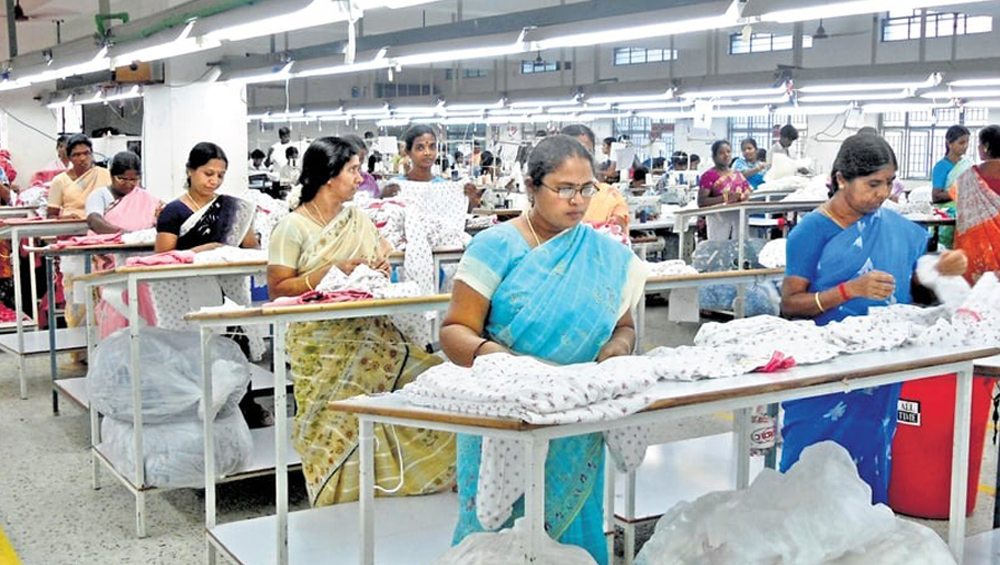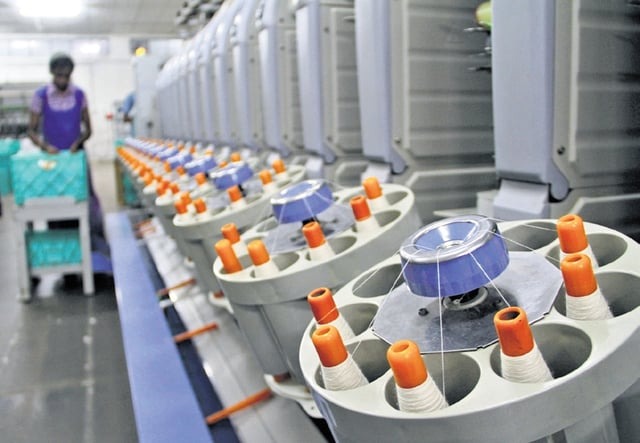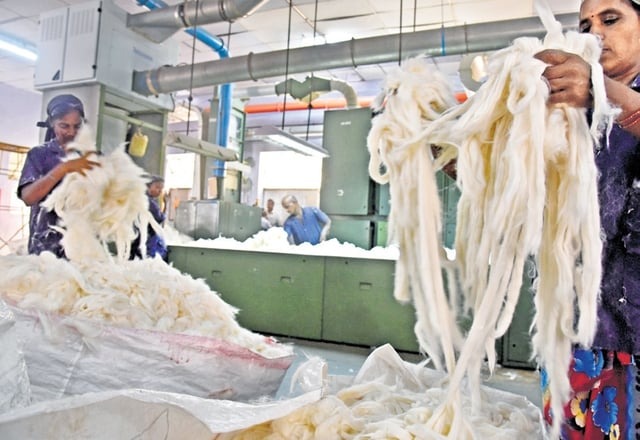
Category: YARNS
Country: India
Region: South Asi
It wouldn’t be an exaggeration to state that Coimbatore’s journey as the ‘Manchester of South India’ symbolises resilience, innovation, industrial excellence and entrepreneurial spirit.
By Aravind Raj
Updated on: 30 Mar 2024, 8:58 pm
4 min read
The textile industry in Coimbatore has been the cornerstone of the region’s economy, driving growth, employment, and innovation.
Coimbatore boasts a rich legacy of textile manufacturing, dating back to the early 19th century. The roots of the industry can be traced back to the entrepreneurial spirit of its early settlers. With a favourable climate and abundant cotton cultivation in the region, Coimbatore emerged as a natural choice for textile manufacturing. The city’s strategic location coupled with its well-established trade networks facilitated the rapid expansion of the industry during the British era.
Issues related to unstable prices of raw materials and challenges in marketing brought together mills of the south. While textile mills in western India were playing an important role in the sector nationally in the early 1990s, the units in the south, engaged in yarn production, faced different challenges due to their geographical location. The metamorphosis of a collective entity for the industries in the south seemed to be a logical progression. The idea of forming an association of mill owners in south India was first mooted by RK Shanmugam Chetty, the first finance minister of independent India.
The Southern India Mills Association (SIMA), which began its journey with 11 mills as members in 1933, has grown into the single largest entity representing the organised textile industry in south India. It is the only organisation in the industry to have in-house expertise on the entire value chain of textile production — from designing a textile project to marketing.

Evolution & modernisation
Over the years, the textile industry in Coimbatore has witnessed significant evolution and modernisation. From traditional handloom weaving to mechanised textile mills, the sector has embraced technological advancements to enhance productivity and quality standards. Today, Coimbatore boasts a diverse ecosystem of textile enterprises, including spinning mills, weaving units, dyeing facilities and garment manufacturers.
In the recent years, the textile industry in Coimbatore has been in the forefront of innovation and sustainability initiatives. Several companies have invested in state-of-the-art machinery and processes to minimise environmental impact while optimising resource utilisation. Additionally, there has been a growing emphasis on ethical labour practices and social responsibility, ensuring fair wages and working conditions for employees across the chain.
Despite facing stiff competition on international markets, Coimbatore’s textile industry has maintained global competitiveness through continuous innovation and adaptability. The city’s skilled workforce coupled with its robust infrastructure and supportive government policies has enabled local businesses thrive in the global market. Strategic collaboration and partnership with international brands have facilitated market expansion and product diversification.
But the industry is not without its challenges. Rising production costs, electricity tariff hikes and evolving consumer preferences pose significant hurdles for businesses in the region.
The Covid-19 pandemic also disrupted supply chain and dampened demand, necessitating agile response and resilient strategies.
Amid all these challenges, however, lie ample opportunities for growth and innovation. With an increasing focus on sustainability and eco-friendly practices, Coimbatore’s textile industry is well-positioned to capitalise on emerging trends and consumer preferences. The government’s initiatives to promote investment and modernisation in the sector bode well for its long-term sustainability and competitiveness.

Role of Tiruppur
Tiruppur, which was part of the Coimbatore district in the past, was also part of the textile zone. It was filled with handloom and cotton mills in the early 20th century. The first knitting unit in Tiruppur was established in 1925, and the industry experienced slow growth until the late 1930s. Strikes in knitting factories in Salem and Madurai during the late 1930s led to the establishment of new firms in Tiruppur. By the 1940s, Tiruppur had become a prominent hub for knitwear in south India.
In 1942, there were 34 units producing knitwear, all of which were composite mills where the entire chain of production took place within the same unit. Some units specialised in tasks like bleaching and dyeing, operating within larger units. The number of units increased to 230 by 1961, and until the early 1970s, the industry primarily served the domestic market. These units were mainly composite mills with no subcontracting system. It was not until the 1980s that the export market began to grow, turning Tiruppur into the largest exporter of cotton knitwear in the country, accounting for approximately 80% of all cotton knitwear exports.
It wouldn’t be an exaggeration to state that Coimbatore’s journey as the ‘Manchester of South India’ symbolises resilience, innovation, industrial excellence and entrepreneurial spirit. From its humble beginnings to its current stature as a leading textile hub in India, Coimbatore has demonstrated its ability to adapt, innovate and thrive in an ever-changing industry. As it continues to embrace new challenges and opportunities, Coimbatore’s textile industry remains a source of pride and inspiration for the entire state and the nation.
Courtesy: Newindianexpress.com
Copyrights © 2026 GLOBAL TEXTILE SOURCE. All rights reserved.